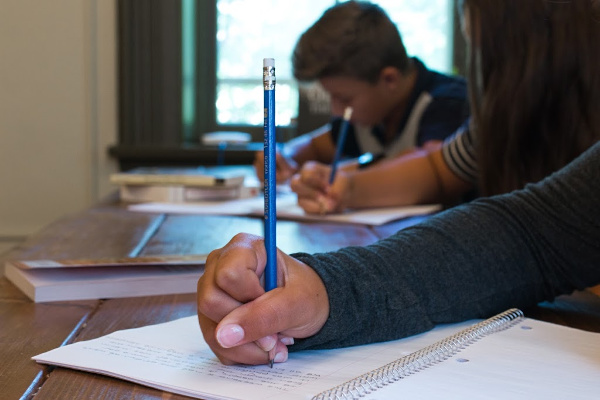What’s the secret to learning and achieving school success? It’s not an easy question to answer. You have probably seen other people’s children excel in school. How do they do it? Do they have some secret way of learning?
Well, actually they do!
 Many studies indicate that some students are better learners than others, and that those who are, most likely have habits and skills that are conducive to learning. Here are our 7 skills that you should encourage your child to develop for school success.
Many studies indicate that some students are better learners than others, and that those who are, most likely have habits and skills that are conducive to learning. Here are our 7 skills that you should encourage your child to develop for school success.
Time Management and Organization
Students who are successful are organized and manage their time well. They take good notes, know how to break down projects into doable parts, and consistently meet deadlines.
One way to help your child plan ahead is by scheduling everything into an accessible calendar that your child looks at daily. The calendar should include all due dates, but also times that your child can work ahead on parts of her assignment or study for a test.
Goal Setting
A child as young as 5 or 6 years old can definitely have a goal! Her goal could be to spell 20 words. The point isn’t that the words are only 3-letters long. The point is that one goal leads to another and another. Then, when your child is in high school and the goals become more challenging, achieving will be a habit.
Encourage your child to break down goals into school terms or semesters, and then into months, weeks, and even daily goals. The beauty of goals is that they are never set in stone and can be revisited and adjusted anytime.
Thinking
Most parents know that reading is an important (if not the most important) predictor of school success, but did you know that thinking skills go right along with reading skills. Sounding out words and decoding is all well and good, but not that helpful if your child cannot make connections to his prior knowledge, other texts, and the world around him. It is through thinking, that your child is actually learning.
When reading with your younger child, be sure to ask questions about what he read. Some questions can be, “Does that character remind you of anyone you know?” or “Did you ever feel that way?” For older children, the best question to ask is “Why?”: “Why do you think she did what she did?” or “Why do you think that upset her?” and especially “Why is this important to know and to think about?”.
Communication
When we hear the word communication, we think of talking, but communication skills involve much more! Teachers expect students to think about what they read and then communicate either verbally or in writing, not only the information, but an analysis of what was read.
So, whether your child excels at speaking or writing, is not the point. The point is, did your child read fluently to be able to think about the topic, look at it in many different ways, and is she able to communicate her thinking?
Note-taking
Although parents know that their children need to take notes, what they might not know, is that taking notes should begin before the information is given. Students who are good note-takers prepare ahead of time with questions and graphic organizers to use when listening to a lesson or watching a video they found as part of their research. Preparing before they learn can help students to focus on what they are about to read or hear.
Encourage your child to predict what he will be learning and to make a list of questions he wants answered or needs answered as part of his research. When your child is engaged in this way, he will listen more effectively and be able to concentrate on the most important information.
Test-taking
Performing well on tests is not rocket science – unless your child is studying rockets. The three best ways for students to do well on tests are to: 1) show up to class, 2) take good notes, and 3) know how to organize those notes into mock tests before the test day.
You could help your child perform well on tests by encouraging her to have many “dress rehearsals” before the actual day of the test. Encourage your child to write out questions and answers in mini-tests, use flash cards, and even record herself talking about the subject.
Teaching
Studies show that all students (including adults) learn better when they learn the subject matter to teach it. Whether someone is 6 or 60 years old, the teacher mindset will help them study more conscientiously and organize information into a coherent structure, resulting in improving their own understanding and recall. When a student can “teach” us what they learned, then there is a very good chance that they know it.
Encourage your child to share his learning with you and with others. Ask him to retell an event in the order that it happened or to tell you the five most important points of what he read.
So, there you have it. Seven skills that your child needs in order to be successful at school. If you take away only one idea from our suggestions, we hope it is this: No child has a fixed intelligence or ability to learn, and with encouragement from parents, children can create habits necessary for a life time of learning.
